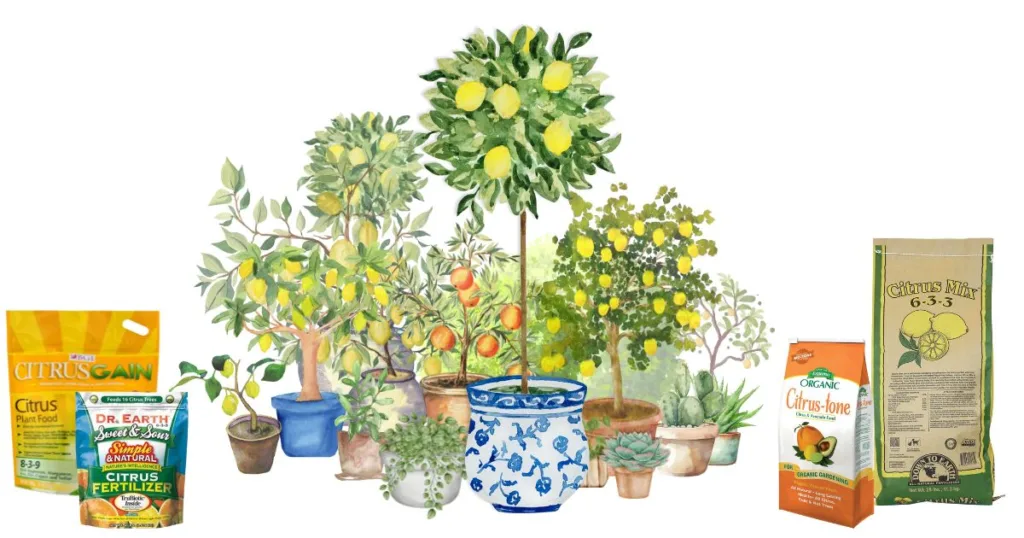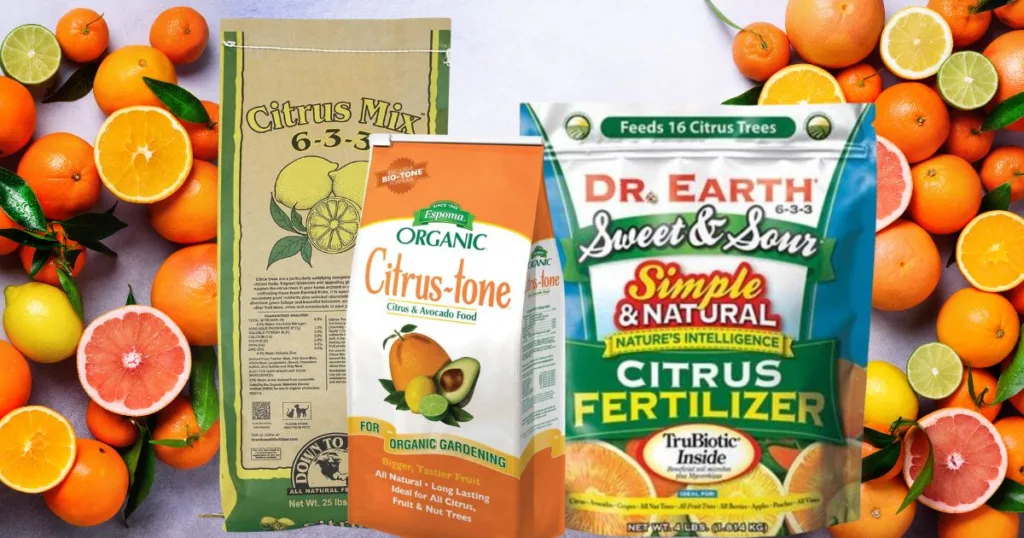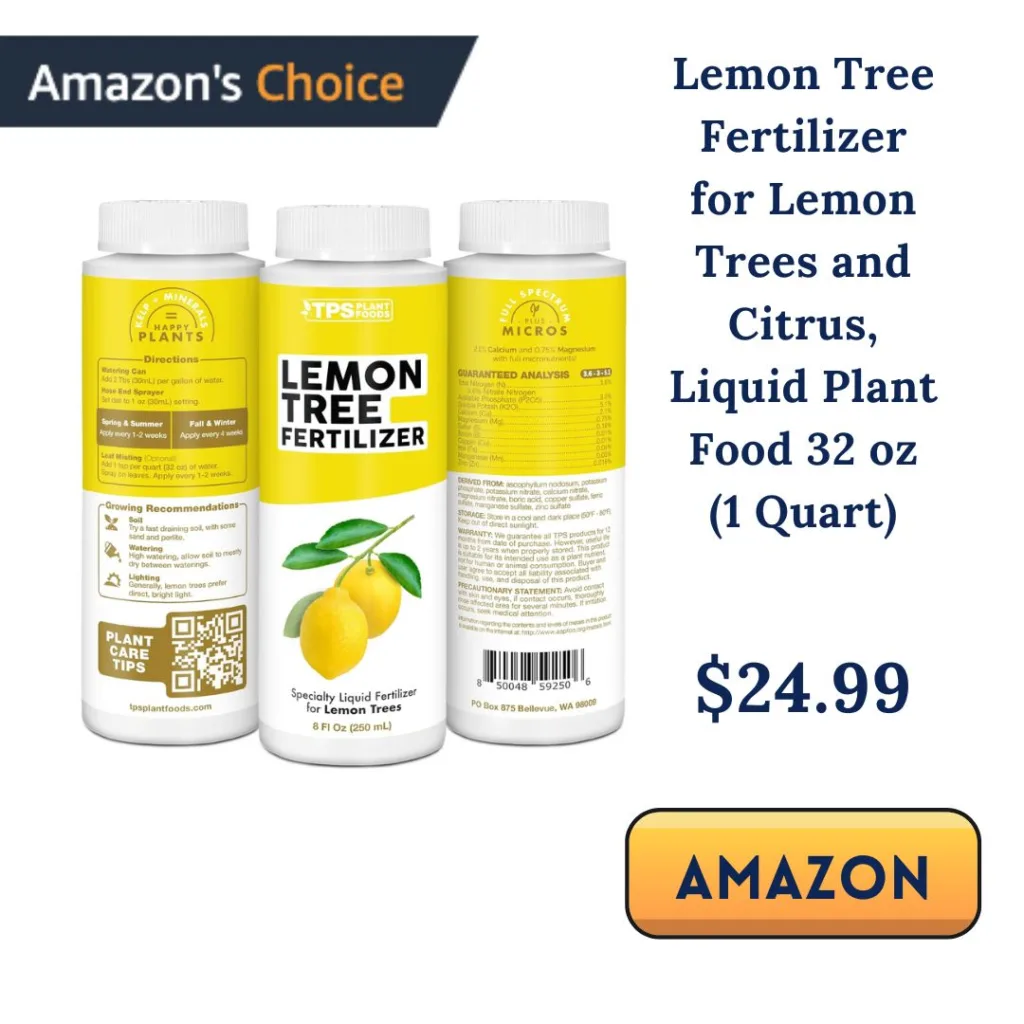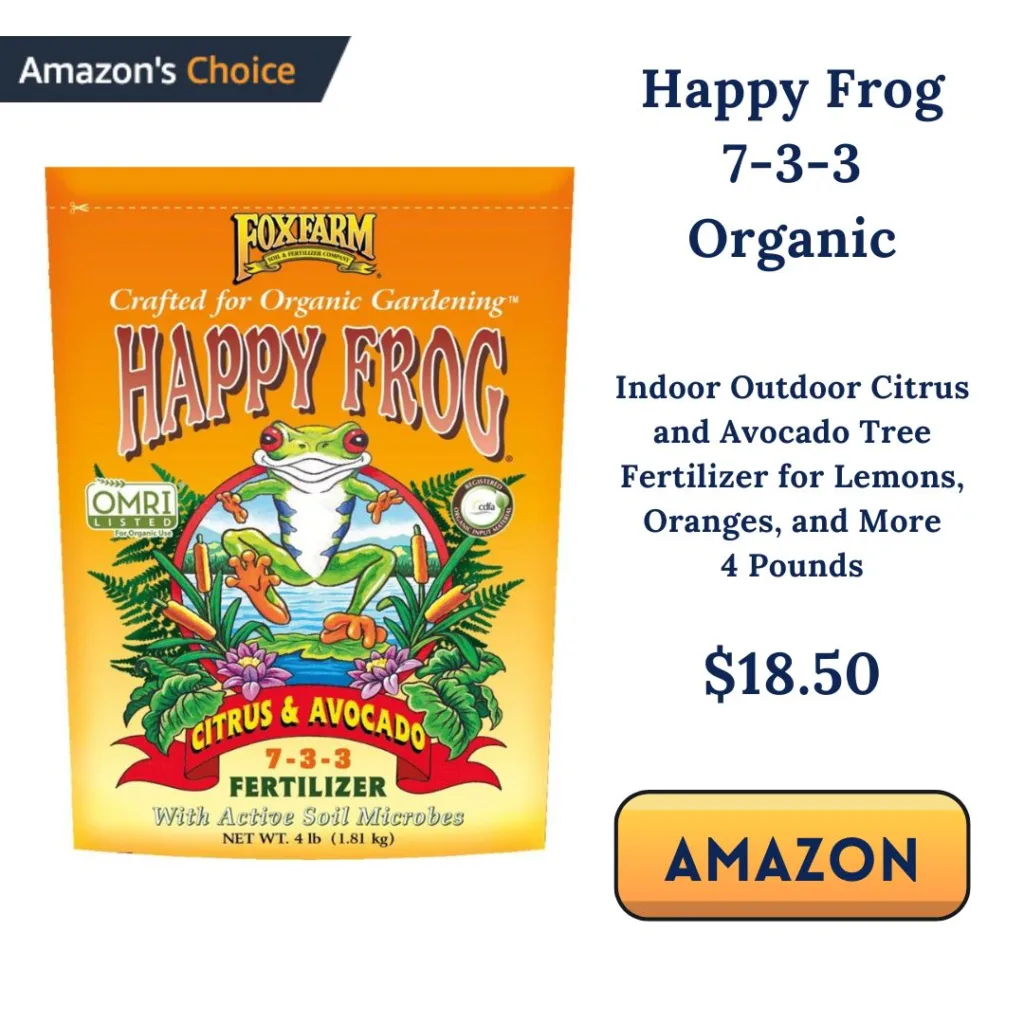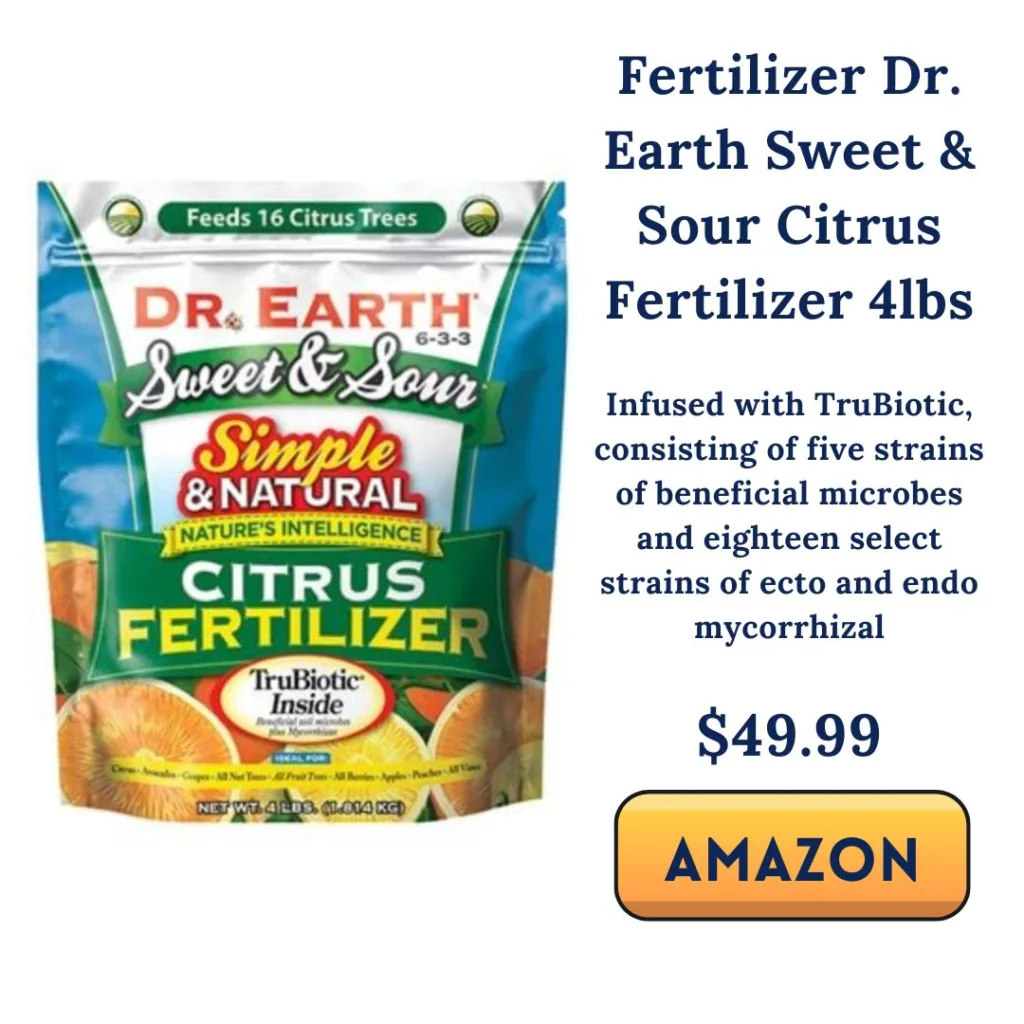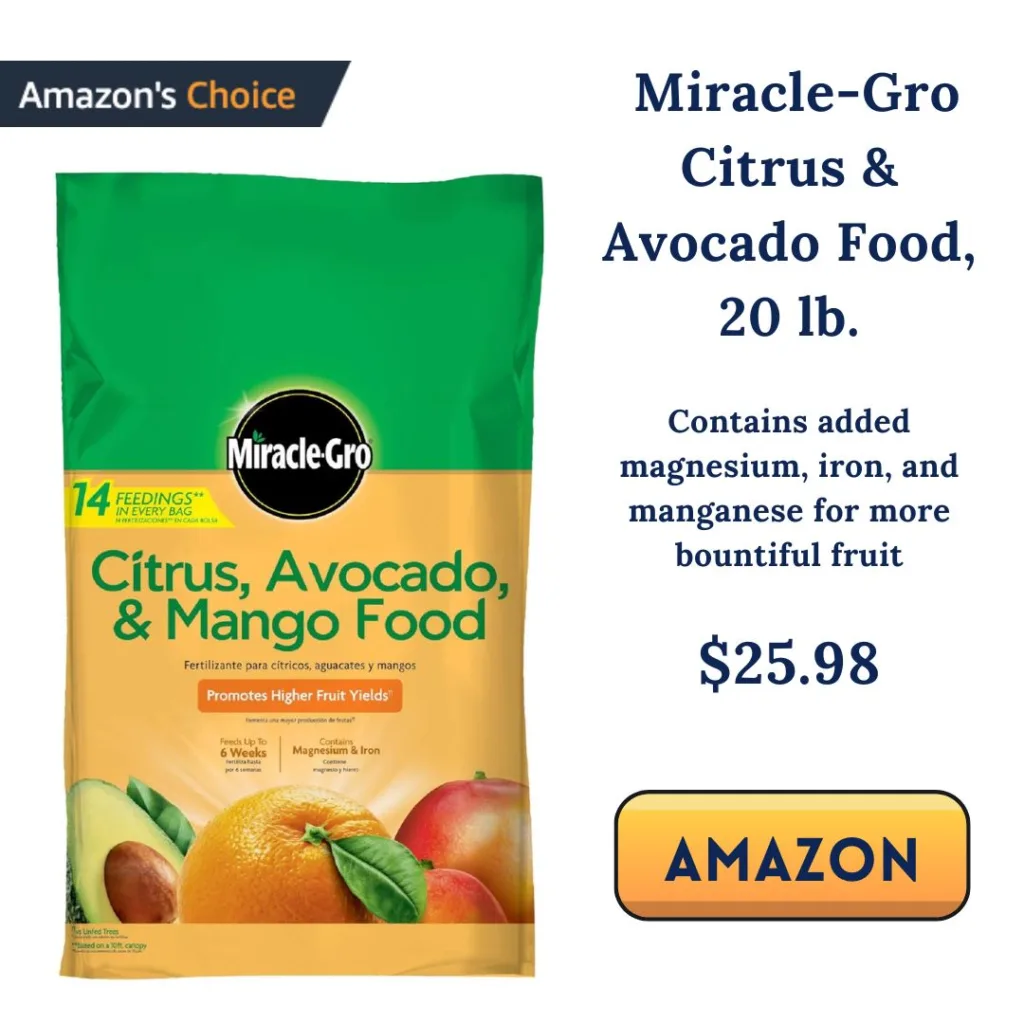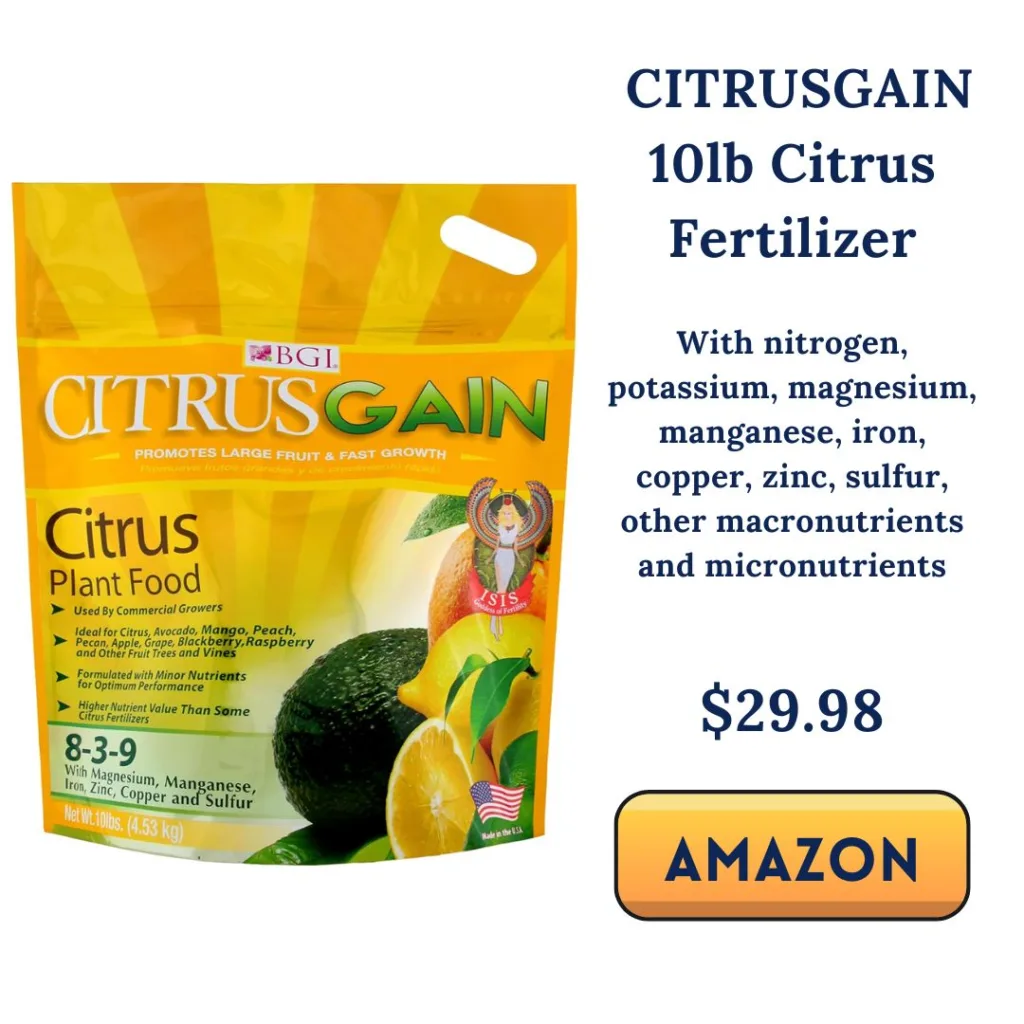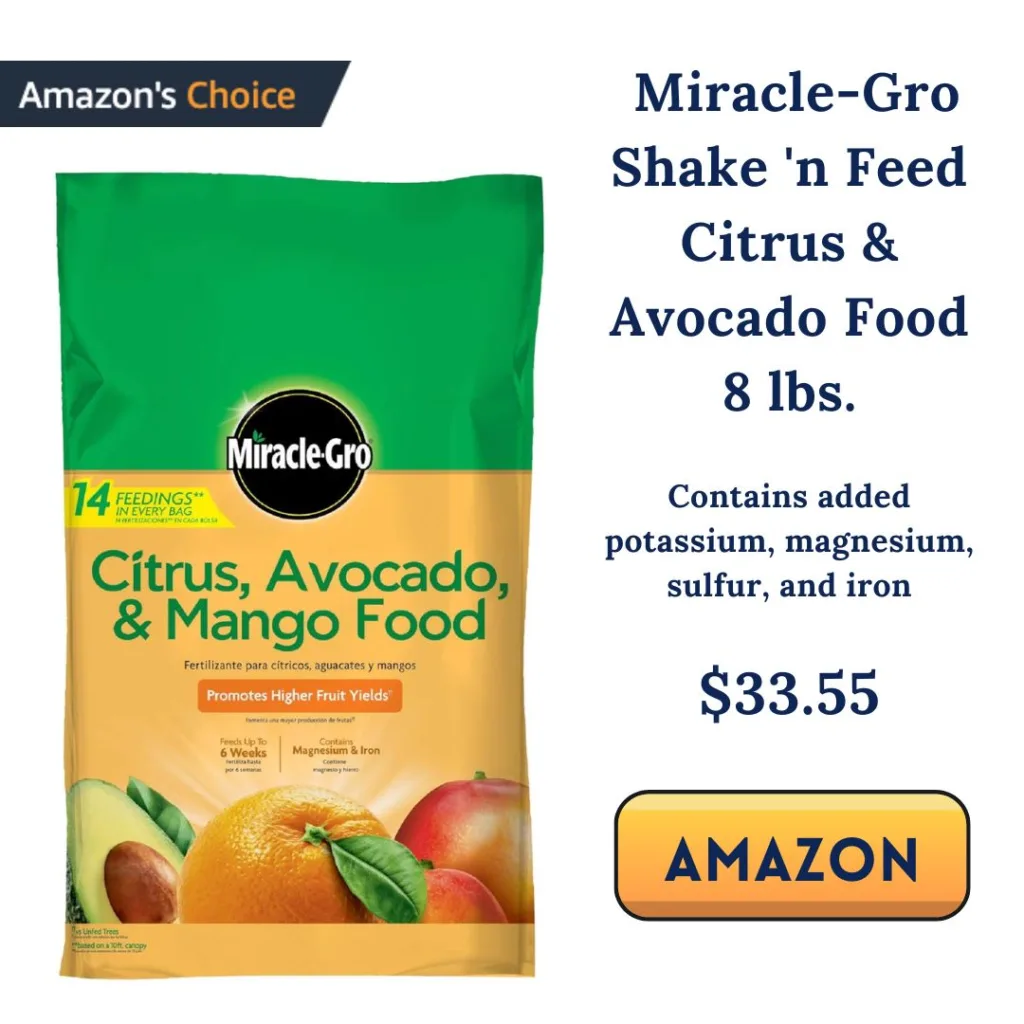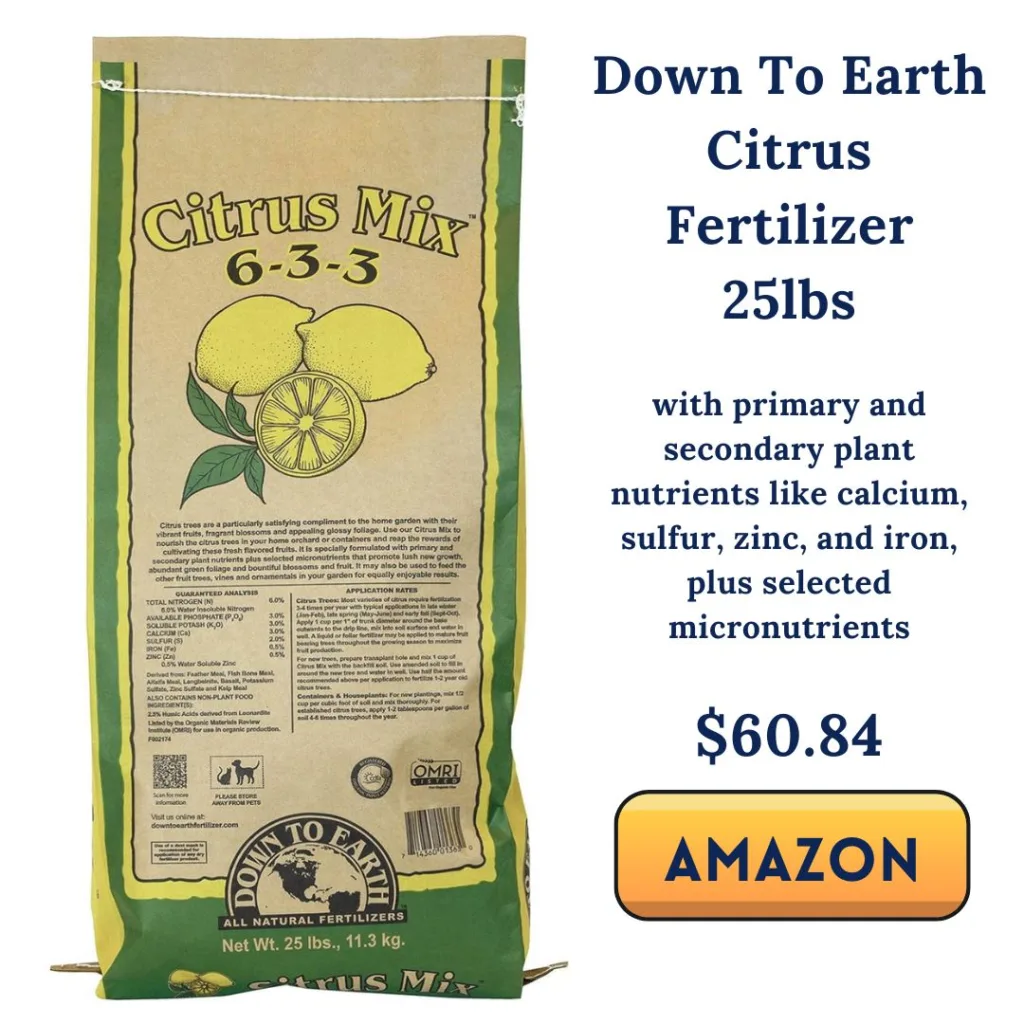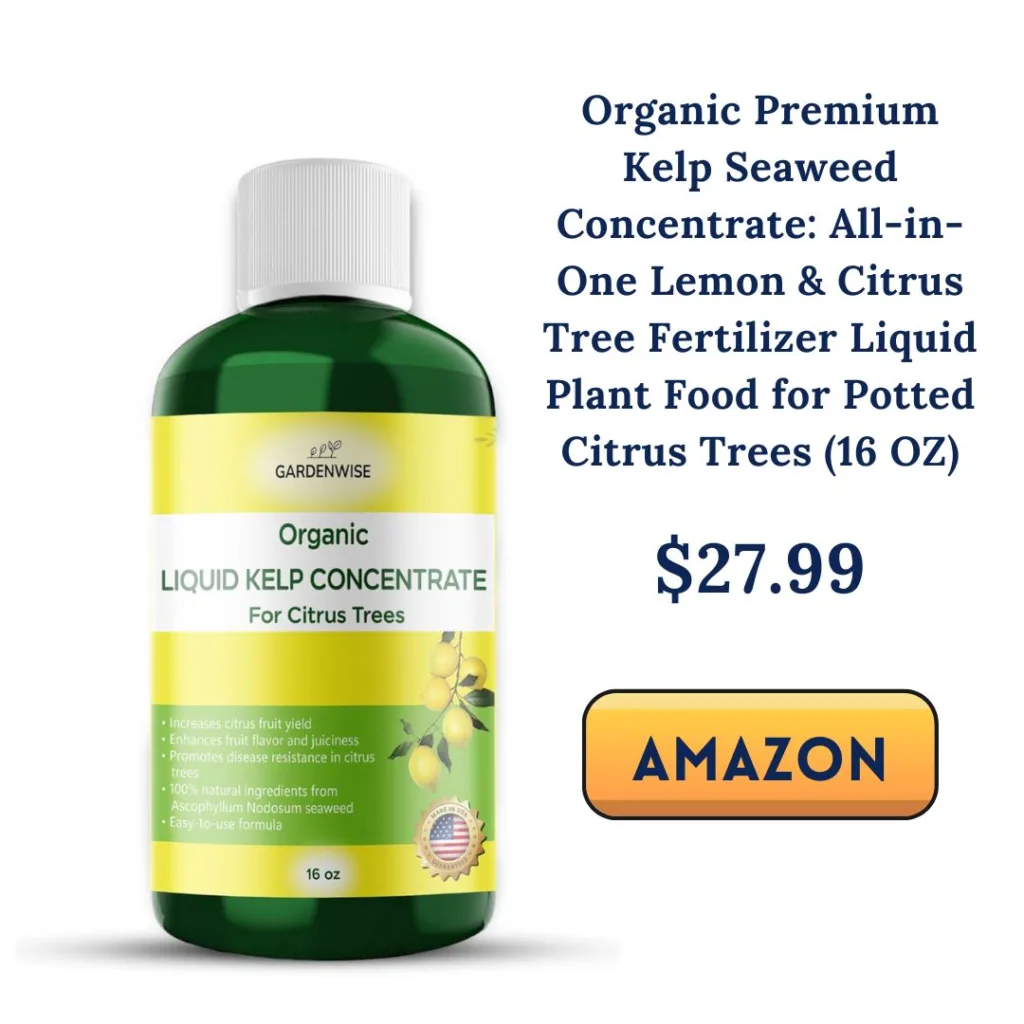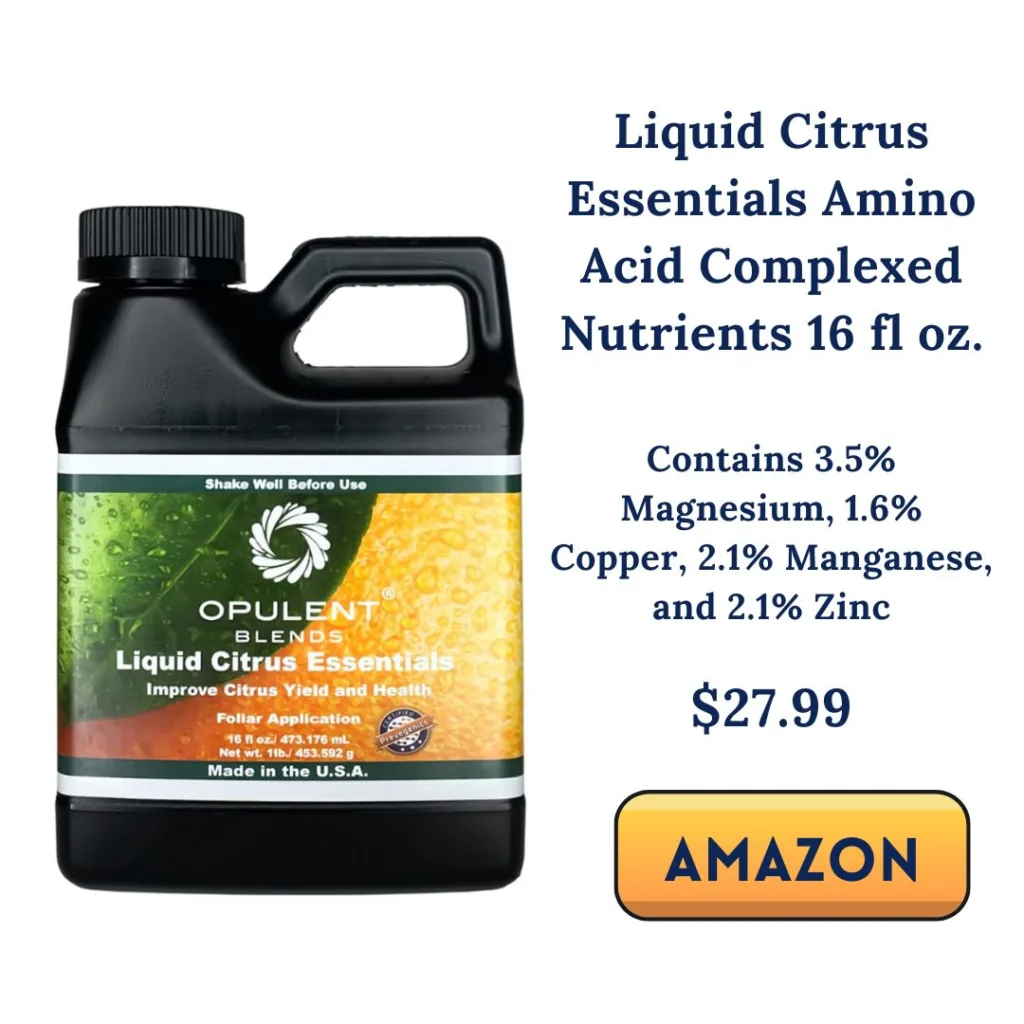The Best Fertilizer For Lemon Trees: What, When, And How To Use It
A Horticulturist And Mediterranean Gardening Expert Shares His Top Picks For The Best Fertilizer For Lemon Trees - For Both Your Potted Lemon Trees And Those Planted In Your Garden

- Nathan Heinrich
- Rome, Italy
Are you looking for the best fertilizer for lemon trees? Did you know you can use the same fertilizer for orange trees, lime trees, and lemon trees?
Furthermore, did you know that you may also use the same fertilizer that you feed your lemon tree to feed your avocado tree?
In this article, I will share my more than 30 years of knowledge of growing up in California on a ranch full of citrus trees, becoming a horticulturist and garden designer, then moving to Italy – the lemon tree capital of the world!
One of my favorite things about living in Italy is how well lemon trees grow in this Mediterranean climate.
Whether you’re growing my favorite variety, the Meyer lemon tree, a Eureka lemon, or a Lisbon lemon, the proper fertilization will give you the best results and help you grow a healthy tree with strong active growth and super tasty fruit.
What Is The Best Organic Fertilizer For Lemon Trees?
There are a number of different types of fertilizer options for lemon trees. I personally prefer natural lemon tree fertilizers, in other words, organic options.
These are my favorite organic citrus fertilizer brands and formulations.
Using these fantastic organic fertilizers you will have the best results and avoid nutrient deficiencies which can lead to yellowing citrus leaves and tasteless citrus fruits.
I’ve included both granular fertilizer and liquid fertilizer options for your ease of use and personal preference.
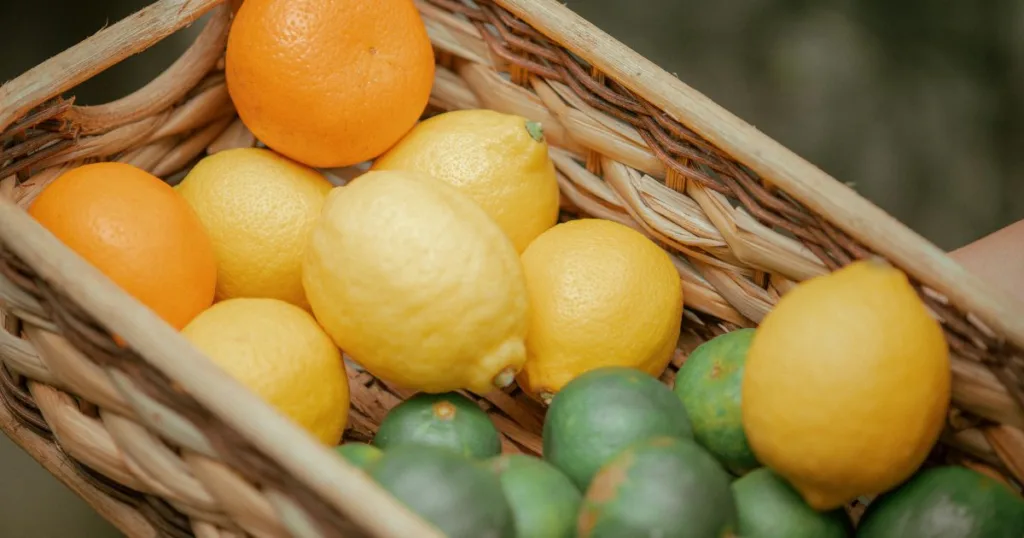
What Synthetic Fertilizers Are Best For Lemon And Citrus Fruit Trees?
If you’re not interested in using organic fertilizer for your lemon trees, there are a number of slow release and granular fertilizer options that will deliver the best results when you follow the label directions.
When Is The Best Time To Fertilize Your Lemon Tree?
When you are considering feeding your lemon tree, the rule of thumb is to start fertilizing before new growth starts at the beginning of the growing season, in late winter or early spring.
For the best results, remember Valentine’s Day as the best time of the year to begin fertilizing your lemon tree – or any other citrus tree for that matter.
The second feeding of your lemon tree should be done in late spring. Mother’s Day is the next date to remember for feeding number 2.
The general guidelines are to only feed during the early growing months, and not too late in the season.
If you live in a cold climate, with the danger of frost during the winter months, your last feeding should be around Father’s Day or no later than July 1st.
*Warm Climates
If you live in a mild or warm Mediterranean climate like Southern California, you can continue feeding – every two months – until late fall. In this case, your last feeding would be no later than Halloween.
Be sure to follow the fertilizer guidelines on the package and apply the recommended amount of lemon tree fertilizer at the base of the tree.
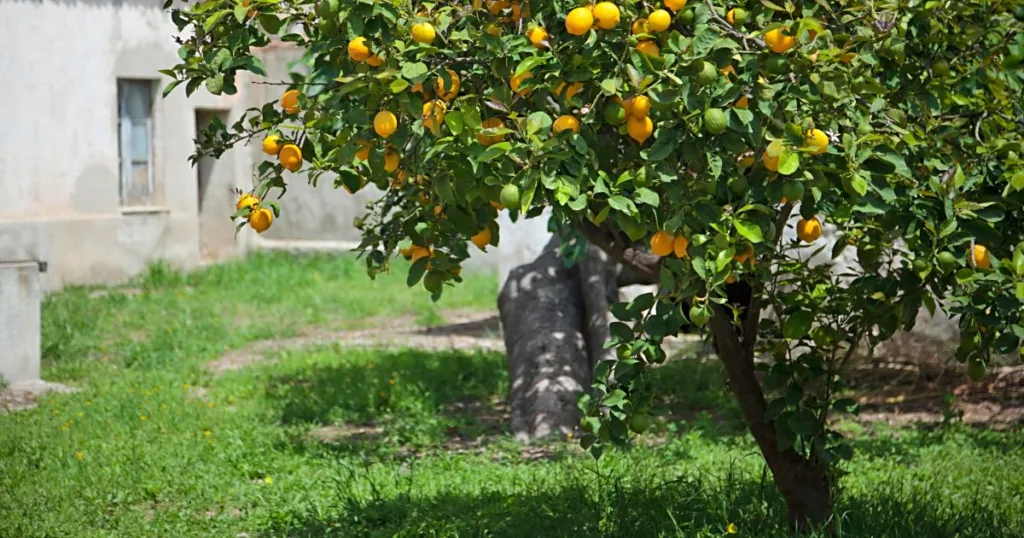
How Much Fertilizer Should You Feed Your Lemon Tree?
For Lemon Trees Planted In The Ground
There’s a simple formula to follow when trying to decide the amount of fertilizer to use for your lemon tree.
For each year-old a citrus tree is, add a pound of fertilizer. Then divide that amount by how many times you will be fertilizing.
If you have a lemon tree that is 10 years old you will need a total of 10 lbs of lemon tree fertilizer for the whole year.
But rather than dumping 10 lbs of fertilizer on your lemon tree, all at once, you need to spread your feedings out over time.
So if you feed three times a year you would give your lemon tree a little over 3 lbs per feeding.
If you feed 5 times per year you would give your lemon tree 2 lbs of fertilizer with each feeding.
Refer to the fertilizer package for the specific directions.
Have you got a whole bunch of lemon or citrus trees that need to be fertilized? You might need his big bag of Down To Earth Organic Citrus Fertilizer.
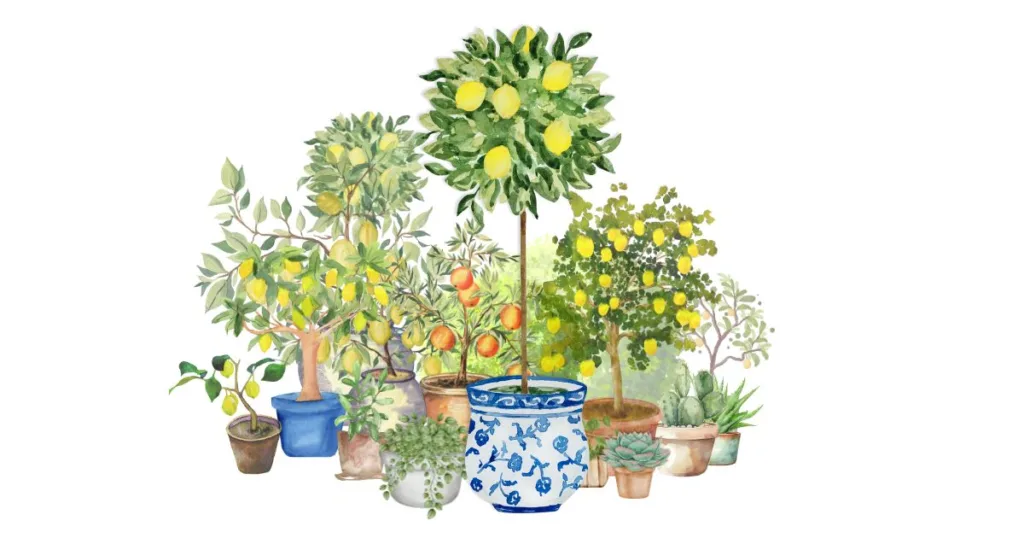
For Potted Lemon Trees
Because lemon trees planted in pots have a very limited amount of soil, you must use a different method when fertilizing them.
My favorite method for fertilizing lemon trees in pots is to use an organic water-soluble fertilizer once a month during the growing season.
These are some of my favorite liquid organic fertilizers that are perfect for feeding lemon trees – be sure to read the fertilizer label to make sure you’re using the right amount of liquid for the best nutrient availability and soil health.
If the label doesn’t give any guidelines for fertilizing lemon trees in pots, use half of the recommended amount so that you don’t over-feed your potted citrus.
*Remember to follow the same directions for when to feed that and how often that we mentioned above.
What Goes Into The Best Lemon Tree Fertilizer?
As lemon trees, and all citrus trees, are rather heavy feeders they need regular feedings.
But as important as regular feedings are, even more important is using a balanced fertilizer with the proper NPK ratio and trace elements. NPK (nitrogen, phosphorus, and potassium) are the major essential nutrients.
A balanced n-p-k ratio fertilizer will have equal parts nitrogen to phosphorus, and potassium.
The best fertilizers will have the proper nutrition balance without too much nitrogen.

Lemon Trees Need More Than Just NPK, They Also Need Micronutrients
These are some of the essential trace minerals that lemon trees need in trace amounts to avoid nutrient deficiencies.
Manganese (Mn)
Manganese is an essential element required for the photosynthesis process. When a lemon tree is deficient in manganese a yellowing of the leaves can occur.
Zinc (Zn)
For any citrus to be a thriving healthy tree it will need proper amounts of zinc.
If your lemon tree is deficient in zinc, its growth may become permanently stunted.
You can cure a zinc deficiency with zinc sulfate or chelated zinc.
Iron (Fe)
If your lemon or citrus leaves have started to turn yellow but the veins of the leaves are still green, you don’t need a soil analysis, you very likely have an iron deficiency.
Many of the best lemon tree fertilizer brands and formulations will include iron, but if they don’t you can always add iron chelates or another type of iron supplement.
Some gardeners actually use rusty iron metal in the soil of their lemon trees to cure iron deficiencies and yellow leaves.
Copper (Cu)
Copper is essential in enzymatic reactions in lemon trees.
If your lemon tree needs copper you can be treated with copper-based fungicide or copper sulfate.
Boron (B)
Boron is essential for flower and fruit development and cell wall formation.
When a lemon tree a boron deficiency can cause fruit to become deformed and tasteless.
Make sure your lemon tree fertilizer has boron in it to avoid a deficiency.
Some of the best citrus tree fertilizer brands have all the required trace elements

How Do You Grow Healthy Lemon Trees?
If you’re a home gardener growing lemon trees there are some things to keep in mind to encourage increased fruit production and improve disease resistance and cold protection.
Soil
Sandy soils that are well-drained and high in organic matter are the best types of soils for lemon trees.
If you’re growing a lemon tree in a pot, I highly recommend filling the bottom of the pot with several inches of rocks and gravel (the larger the pot the more gravel and rocks) this helps with improved drainage.
Use a cactus or succulent potting soil to which you can add orchid bark for good drainage and a
soil condition that can retain moisture.
Sun
While lemon trees can handle light shade during the morning hours, they prefer full sunlight.
Remember lemon trees are native to Italy and the Mediterranean region, they don’t like excess water or damp dark shady locations. Growing in dry, sunny, warm climates is the best way to grow the delicious lemon and citrus fruits.
Water
Lemon trees prefer soil a bit on the drier side.
When you water, the best way to make sure you water thoroughly is to water slowly.
Turning on a water hose on a slow drip overnight once a week in the summer is a great way to make sure your mature, ground-planted, lemon and citrus trees get enough water.
Some people like a watering system with a drip line to make sure that, especially potted, lemon and citrus trees don’t suffer from drying out during the warm growing season.
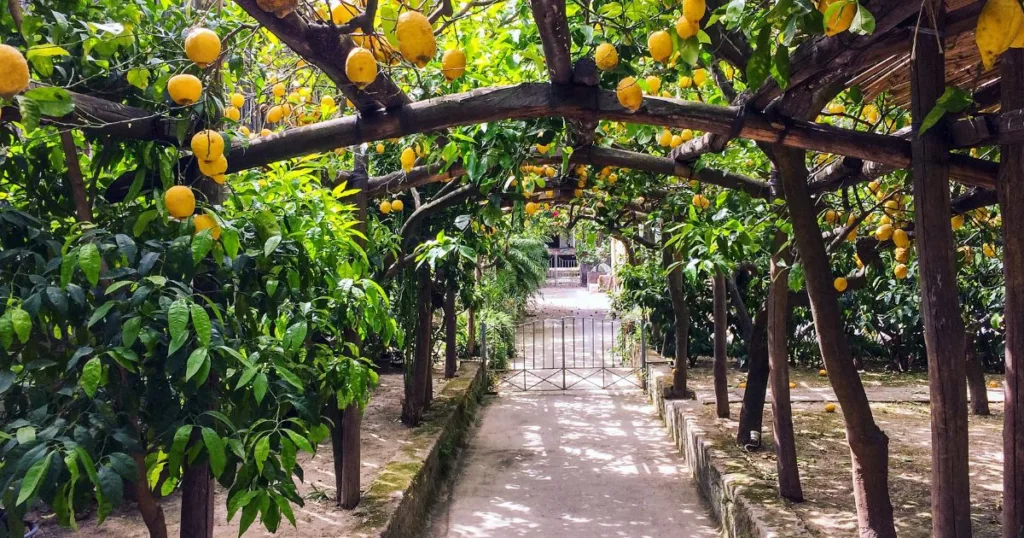
Recap: The Best Fertilizer For Lemon Trees
Whether you’re growing key limes, lemons, sweet orange, or any other type of citrus fruit tree, if you follow the guidelines we covered in this article, which I learned at my family’s ranch in California, working in the nursery industry for over 15 years, and growing lemons in Italy, you will become a proficient grower of citrus and true lemon trees.
No matter if this is your first year, second year, or fiftieth year of growing lemon trees, you are now a well-informed citrus tree, lemon tree grower – or whatever the right tree in the citrus family is for you.
Besides the best fertilizer for lemon trees, we have also covered everything you need to know to grow the best lemon trees in containers and pots as well those planted in your garden.
Best of luck with your lemon trees and happy gardening to you!
Want to read more about Mediterranean gardening and the Mediterranean Diet?
Disclosure:
Here at All Roads Lead To Italy, we only recommend products we would use ourselves and all opinions expressed here are our own.
This post may contain affiliate links with potential savings at no additional cost to you.
In some cases, we may earn a small commission.
Information in this article have in part been sourced from studies from the University of California,
Read our privacy policy for full details.


Dreaming of Moving to Italy?🇮🇹 - Get this FREE podcast & be INSPIRED by someone who moved from New York to Italy in 2020!
*By signing up for this Podcast you’ll also be joining our mailing list through which we will keep you up to date on all things Italian! We never sell your information and you can easily unsubscribe at any time.
Share This Post
Author Info:

Nathan Heinrich
Nathan is a writer, designer & horticulturist. He is the founder and Editor-in-Chief of "All Roads Lead to Italy" Magazine & host of the Top-10 Travel Podcast, "I'm Moving To Italy!". Nathan was born and raised in a 6th generation farming family in Northern California, he is currently, a dual Italian citizen, living in the Prosecco Valley of Northern Italy, near Venice.

